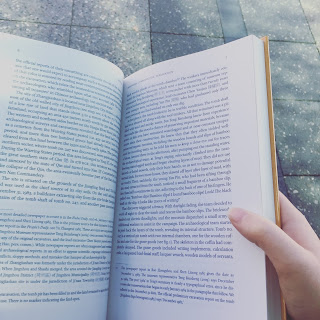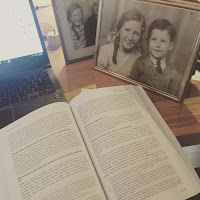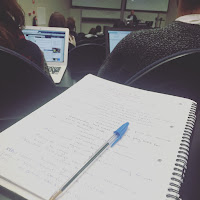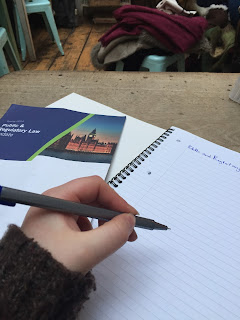This
case is interesting as it is a case taking place in 2017 for a murder in 1983.
Unlike some criminal acts murder has no statute of limitation – or expiry date,
after which the prosecution can no longer prosecute. The maximum penalty for
murder, all around Australia, is Life imprisonment, so that is the penalty that
many heinous crimes are given. However, as this is a murder from 1983, the
court had to apply the law from the time. This was that the imprisonment for
life was a mandatory sentence. At [4] Justice Button acknowledge that ‘the maximum penalty as it existed in
1983…speaks for itself with regard to the gravity with which the unlawful
taking of the life of a fellow human being…was and is assessed by parliament
and the community that it represents.’
The
case facts, as recounted, are that in 1983 the offender offered the deceased a
lift home. The deceased was drunk and had believed the false representations of
the man that he was a police officer. He then drove her a short distance away,
and possibly during intercourse – the facts are not agreed upon – he crushed
her windpipe, killing the deceased. Her body was then stored in the boot and
the offender took steps to clean the evidence. There was evidence adduced at
trial that the offender had a history of strangling sexual partners who refused
his advances.
This
case is interesting as the judge was not required to determine guilt but
relative seriousness of the offence. There were two opposing facts of the case
that made this determination difficult the first was that the case was more
serious because the offender had invaded the woman’s sexual autonomy and the
murder took place during an act that was obviously dangerous to human life
given her own level of intoxication.
The
second fact that goes in favor of the offender is that the murder was
unintended. There is a general acceptance that premeditated, assessed and
planned murder is of greater seriousness than a murder occurring in the spur of
the moment.
That
being said at [16] the judge determined that while I appreciate the force of what defence counsel has said about the
breadth of the concept of felony murder, this offence against a young woman in
the prime of her life, simply for the sexual gratification of the offender,
cannot be assessed as anything other than extremely grave.’
When
sentencing the judge took into account the following;
-
Plead not guilty, resulting in no utilitarian discount
-
No mitigating factors
-
Has not shown remorse
-
Has not accepted responsibility
-
Previous rapes of similar description
-
His age is now 64
-
He has not been convicted of anything since 1974
Around
the world legal courts have also become live to the issue that the considerable
delays between getting arraigned, trial and sentence amount to some degree in
delay of justice. In Canada it was determined that that a four year delay would be sufficient to constitute a delay of
justice. However, this has not yet been determined in Australia.; R v Jordan.
In
this case it was discussed from [29-31] how the delay of justice proposition
may apply to the offender. While he acknowledged that there was a strong
between the murder and the charges, it was not by process of the law or
deliberate delay of the authorities rather, and to use his honors own words, the matter is not to be equated with a case
in which the charging of a person is delayed [or] he or she exercises his or her right to silence. Instead the delay
in the resolution of the matter is to a
large degree, attributable to the offender. [31]. It was determined that
the delay should reflect to a limited
degree the sentence.
Further
to the determination of sentencing, it became at issue how the mandatory
sentence of life imprisonment was to be treated. While it is no longer
mandatory, it has come to be accepted in the court that the law does not
operate retrospectively and the law that is in place at the time of the offence
is that law that must apply to the offence; R v
Magnuson. However, it was hardly a year later that the law was changed.
Meaning that the mood of the times when the crime was committed was not
significantly different. Moreover, his honor acknowledged that it was general
practice for crimes of a similar nature to serve 11 to 10 years before being
released on parole. This inferenced a standard of treatment that the offender
may have appealed to.
Then
a similar case, not committed by the offender, R v Fleming was raised by
defence as a potential sentencing guide. It accounted for an imprisonment of 21
years with a non-parole period of 16 years.
It
was also accepted that the sentence must reflect the time in custody spent
prior to sentencing.
Final
determination factors
There
was a lack of
-
Intention to kill
-
Multiple murders
-
Prior murders
-
Not a contract killing
-
Act of heinous cruelty, indignity, torture or mutilation
This
are important to note that they are not present because they are standard
elements in todays courts, where the ultimate sentence is imposed. It was for
that reason that his honor was not
satisfied that a determinate sentence would fail to reflect the gravity of what
the offender has done; s61 of the Crimes (Sentencing Procedure) Act. [54].
In
Australia, because it is the adversarial system victims aren’t often invited to
the stand to explain how things have impacted them personally. That being said
the courts invite victim impact statements to be submitted to the judge. This
is something that the court may consider when determining the sentence that is
given to an offender. They are not compulsory and only discuss how the crime
has impacted the
individual;
-
Physically
-
Emotionally
-
Financially
-
Socially
His
honor acknowledged that the two sisters who submitted impact statements spoke movingly of the pain that has been
endured for decades as a result of the disappearance of the deceased...that
pain had been made worse by not knowing precisely how she died. Many years ago,
their parents went to their graves without any resolution of the mystery loss
of their daughter.’
It
was not made clear how exactly this added to the sentence, but it is inferenced
that due to the serious impact the offender’s actions had upon the family of
the deceased, his actions were deemed to be more serious than an act that had a
lesser impact on the family.
Final Sentence
The
offender was convicted of murder with a non-parole period of fifteen years and
a parole period of 5 years, following the fifteen. This means that for fifteen
years following this sentence the offender is ineligible to apply for parole.
After that he is eligible to be released.















